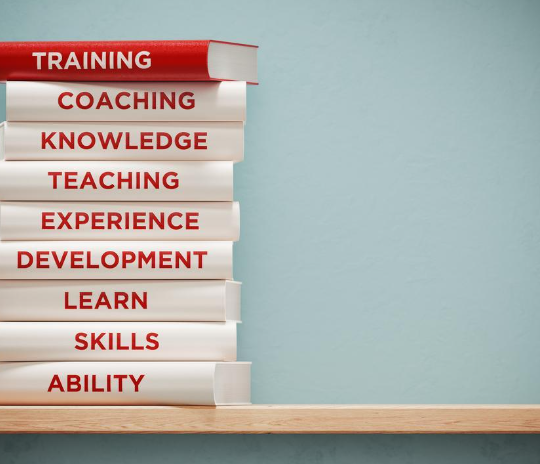 Power Engineering was one of the first fields to emerge within Electrical Engineering. It is concerned with the generation, transmission, and distribution of electricity. Power engineers also work on various power devices and power conversion systems.
Power Engineering was one of the first fields to emerge within Electrical Engineering. It is concerned with the generation, transmission, and distribution of electricity. Power engineers also work on various power devices and power conversion systems.
Many electrical power engineers operate as part of a huge team that constructs, maintains, and develops the enormous networks that connect power generators with power customers.
Power engineers are talented professionals that work in a subfield of engineering that focuses on electrical power distribution. Machines that these people develop build, repair, and maintain range from refrigeration units to location tracking to generators, and they are used in a variety of industries.
The way to become an electrical power engineer is to get graduation, study for FE exam and pass it, and then apply for the PE Power License to attract more oppertunitites in this domain.
We will be discussing what a power engineer performs, the skills and certifications required for the profession, and the steps you may undertake to be one.
What is the role of electrical power engineers?
Knowing the answer to the question “What does an electrical power engineer do?” can help you decide whether this is the proper career path for you. These engineers operate in the branch of engineering that deals with the generation, transmission, distribution, and use of electrical energy.
Because power engineers can be valuable to various firms and industries, what a power engineer does varies from one professional to the next. One power engineer might be responsible for designing sophisticated power platforms that support street lights, while another may be responsible for boilers and residential heating systems. The following are some common duties shared by most power engineer jobs:
Comprehending guidelines and specifications
Before beginning an assignment, a power engineer must evaluate the brief and completely comprehend the requirements. This enables them to carry out their duties and create results that correspond to the brief’s objectives. To develop a good strategy, they may consult blueprints or building concepts.
Creating electrical systems
One of the most important components of a power engineer’s job is to design various electrical systems to meet the criteria of a brief. This could include creating circuits for computers or simpler electrical systems, such as those used in household lights. It may also entail the design of systems used for military purposes, such as radar systems.
Designing electrical systems
The power engineer builds the electrical systems after being developed. Electrical Power engineers develop the power systems they design using their years of training and expertise, including designing generators, transformers, or circuit breakers. These specialists carry out their duties with various instruments, including pliers, wire strippers, and non-contact voltage testers.
Technical Specifications Interpretation
Engineering outlines include technical instructions outlining how to approach a project. These specifications can be extremely complex, requiring the interpretation of a professional power engineer. When a technical specification document poses a challenge, they employ their professional problem-solving skills to propose alternate solutions, which they subsequently execute using logic.
Cost and timeframe estimation
Engineering is a job that necessitates a variety of resources, including time and money. Electrical Power engineers often have the abilities and knowledge to predict the length of a project effectively. They also provide reliable cost estimates after thoroughly researching the requirements of a specific project.
Using 3D design software
To visualize and develop gear, power engineers employ 3D modeling software. This allows the engineer to save money by not spending time and materials developing actual models. Because these individuals work with computers and 3D modeling software daily, familiarity with these technologies is expected.
Cooperation
Because power engineers often work in groups, teamwork is an essential component. These specialists also communicate information to and receive directions from key stakeholders. Electrical Power engineers must collaborate with a wide range of individuals and explain complicated concepts clearly.
Product testing and retesting
Before project managers can approve a product, it is usually subjected to tests. Electrical Power engineers are in charge of both planning and conducting tests. If a product fails a test, the power engineer returns it to the previous stage and recommends adjustments. Following the implementation of the improvements, the power engineer retests the product.
Conducting system and equipment inspections
When an electrical power engineer is not working on a project, one of their daily jobs is to do diagnostic checks on machinery and uncover faults. Computers are used to detect problems in electrical systems.
Power engineers are in charge of routine repairs and maintenance on systems and equipment. If they do a diagnostic test and uncover damage, the engineer’s responsibility is to repair it.
Work documentation and report writing
When employing a systematic engineering approach, it is critical to keep track of the work done on systems and equipment. It also gives the engineer more control over the design, development, and delivery of products because they can refer to each stage as needed. Engineers are often in charge of proposing ideas or presenting information about a design or product. Power engineers gain from solid interpersonal and public speaking abilities for these reasons.
Electrical Power engineer abilities
Power engineers, regardless of industry, consistently exhibit a variety of talents that benefit them in their profession. Here are some general abilities that any power engineer can learn and apply to their job:
- Technical skills and understanding of current technologies
- Project management skills
- Multitasking skills
- Problem-solving skills
- Communication skills
- Versatility
- Organizational and time-management skills
Electrical Power engineers are important individuals in various industries since they work on large electrical systems, such as those used in telecommunications and microelectronics utilized in computing devices. Here is a list of some of the industries where power engineers can be found:
Defense:
Because many weapons are powered by electricity, the defense industry relies on electrical power engineers to develop, build, and maintain these systems.
Construction:
Power engineers play an important role in the construction industry since they design and implement lighting systems and other electronic systems utilized in buildings and other structures.
Telecommunications:
Power engineers assure the proper operation of telecommunications networks by working on the technical infrastructure that keeps them up and running.
Aerospace:
Because the technologies used in the aerospace sector are complex electronic systems, power engineers are employed in this area to design, manufacture, and maintain these systems.
Automotive:
Electronic systems in automobiles and other vehicles coordinate numerous components such as batteries, brake systems, and lights.
Utilities:
Electrical Power engineers play an important role in the utility industry since they design, build, and maintain the infrastructure that provides electricity to people’s homes.
How to Get a Job as an electrical Power Engineer
To become an electrical power engineer, you must first obtain certain qualifications and training. The process to becoming one varies slightly; however, here are some stages to help you pursue this career:
- Finish your A-levels
- Complete your university (Bachelor’s degree)
- Apprenticeship
Hence, with a great salary package and special job status, power engineers are the most successful professionals in this era.







